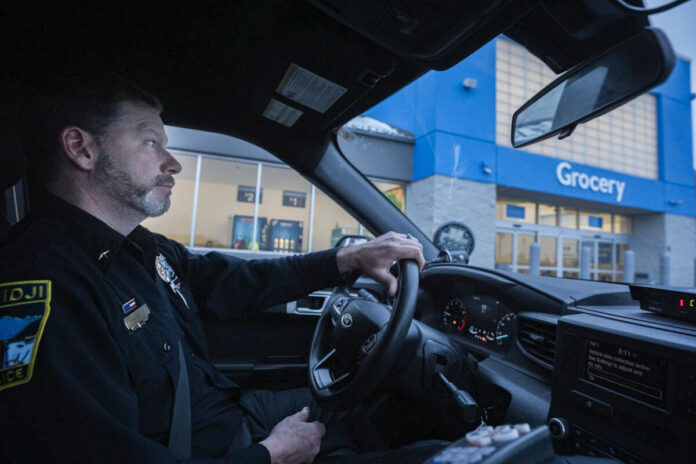Last week’s bitter cold kept most people away from downtown Bemidji, but Kevin Johnson was there, running his cozy gift shop packed with Paul Bunyan gear and buffalo plaid. As he boxed up holiday decorations, Johnson couldn’t avoid a topic that comes up often in Bemidji: the city’s high crime rate. Whether it’s on Facebook forums or at the Visit Bemidji booth at the State Fair, people love to bring it up.
“Yeah, it’s high,” Johnson admitted. “But it’s not like we’re dealing with murders and stabbings every day. It’s mostly petty stuff—people stealing or trying to find somewhere warm during the winter.”
Bemidji has carried this reputation for decades. Nearly 40 years ago, a newspaper dubbed it “the crime capital of Minnesota.” But locals will tell you there’s a lot more to the story. Poverty, substance abuse, and a lack of resources are all tied into the city’s challenges. Bemidji’s poverty rate is about 21%, twice the state average, and nearby reservations face even tougher conditions.
Beltrami County Sheriff Jason Riggs put it plainly: “We’re a small town with big-city problems.”
This past fall, the county was labeled a high drug trafficking area by the federal government. It’s not exactly a title anyone celebrates, but officials hope it will bring much-needed resources to combat the drug issues driving a lot of the city’s crime.
Some reports claim Bemidji has the highest crime rate in Minnesota, with statistics showing over 14,000 crimes per 100,000 people in 2023. That sounds alarming, but there’s more to the numbers.
Police Chief Mike Mastin explains that as a regional hub, Bemidji’s population more than doubles during the day as people come in for work, school, shopping, and medical appointments. It’s also a hotspot for tourism. That surge isn’t factored into the statistics, which makes the crime rate look worse than it is.
“When you adjust for all the people coming into town, we wouldn’t rank anywhere near the top,” Mastin said.
But the issue isn’t just about numbers. Drugs like fentanyl have replaced alcohol as the most common substance abuse problem in the area. Addiction fuels crimes like theft and burglary, according to County Attorney David Hanson.
“When people are desperate, they do desperate things,” Hanson said.
Despite the challenges, Bemidji remains a close-knit community trying to find solutions. Mayor Jorge Prince, who grew up here, acknowledges the struggles but emphasizes that Bemidji is still a safe place to raise a family.
“There’s work to do, but this is my home. It’s where I chose to invest in my future,” Prince said.
Local organizations are stepping up to help, too. Shelters like People’s Church provide a warm place for unhoused residents during the brutal winters. A nonprofit recently opened a day center to meet the growing need for support.
Affordable housing is another big issue. Last year, nearly 50 people were forced out of a subsidized apartment complex due to safety concerns. Plans are underway to rebuild, but the process takes time.
And then there’s the opioid crisis. Sheriff Riggs remembers when alcohol was the main issue in Bemidji. Now, the city has four detox beds to deal with drug addiction, but it’s still not enough.
Advocates argue that long-term solutions like jobs, housing, and mental health care are critical. Reed Olson, who runs a local shelter, put it simply: “We can’t arrest our way out of this.”
Bemidji’s story is one of contrasts. Violent crimes like homicide are rare, yet high-profile cases like the disappearance of two Indigenous teens and the assault of a beloved comic book store owner keep the community on edge.
For Johnson, downtown’s future depends on addressing these issues. The city’s downtown alliance is considering hiring private security and installing more cameras to make the area safer.
“We need accountability,” Johnson said.
At the same time, leaders like Commissioner Tim Sumner from Red Lake stress the importance of tackling deeper issues like discrimination and systemic inequality. “If we build a healthier community, everything else will follow,” Sumner said.
Despite the challenges, Bemidji’s residents remain resilient. They know the road to improvement isn’t easy, but they’re committed to creating a brighter future for their community.





